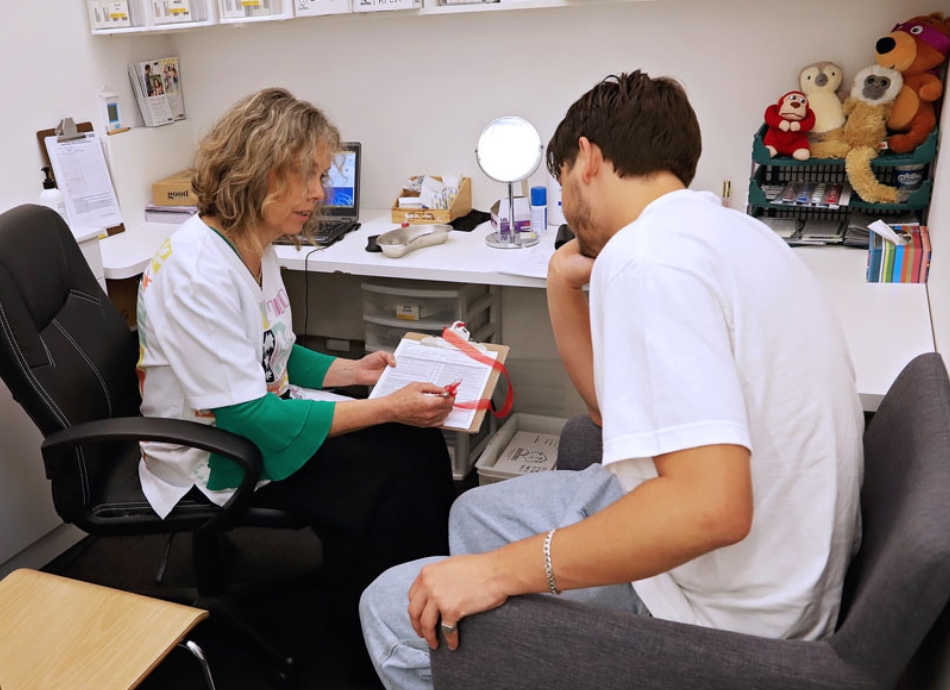You can now add Healthify as a preferred source on Google. Click here to see us when you search Google.
Pneumococcal vaccine
Sounds like 'new-mo-cock-al' vaccine
Key points about pneumococcal vaccine
- The pneumococcal vaccine is used to prevent infections that are caused by the bug (bacteria) called Pneumococcus.
- Pneumococcal vaccine is also called Pneumovax 23® and Prevenar®.
- Find out more about the vaccine and possible side effects.

The pneumococcal vaccine is used to prevent infections caused by the bug (bacteria) called Pneumococcus. These infections can range from sinusitis and ear infections to life-threatening infections, eg, pneumonia or meningitis. Find out more about pneumococcal disease.
Being vaccinated causes your body to produce antibodies against the Pneumococcus bacteria. This means your body can respond faster and more effectively to prevent an infection. It does this because by first coming across a non-infectious version of the bacteria in the vaccine, it learns to recognise it. When it comes across it again, your body can react much faster and in a more effective way.
Vaccination is the best way to prevent infection and reduce serious illness if you become infected. The rate of pneumococcal disease in children under the age of 2 years has significantly reduced since vaccination was introduced.
In Aotearoa New Zealand there are 2 different brands of pneumococcal vaccine – Pneumovax 23® and Prevenar 13®. They are slightly different to each other as they protect against different types of Pneumococcus bacteria.
Your child's age and risk factors decide which brand they need to have and when to have the doses. Often the doses are given a few months apart. They need to have completed all of their doses to be fully vaccinated. Some older children and adults may also be eligible for vaccination (see below).
If your child misses starting a course, that’s okay. Ask your healthcare provider about when they can have the vaccines.
- All infants who are not at high risk of pneumococcal disease should receive the pneumococcal vaccine Prevenar 13 as part of the New Zealand Immunisation Schedule(external link) at 6 weeks, 5 months and 12 months of age.
- Infants who are high-risk are advised to receive an extra dose of Prevenar 13 at 3 months of age.
- Some older children and adults with weakened immune systems who are at risk of pneumococcal infection may be eligible for vaccination with Pneumovax 23. Talk to your healthcare provider about your eligibility.
- The pneumococcal vaccine is usually given by injection into a muscle, eg, the muscle on your mid-thigh.
- If you have a condition that makes you bleed more easily than normal, it may be given as an injection underneath your skin.
- It's safe to get the pneumococcal vaccine at the same time as the seasonal flu vaccine, but at a different injection site.
Like all medicines, the pneumococcal vaccine can cause side effects, although not everyone gets them.
| Side effects | What should I do? |
|---|---|
|
|
|
Babies and children
|
|
|
|
|
| For more information on side effects, see the consumer information leaflets below. |
|
Read more about medicines and side effects and reporting a reaction that you think might be a side effect.
There are many different settings in which you can get a vaccination. These include medical or health centres, pharmacies, community-based clinics including marae-based clinics, mobile health clinics and mobile vaccination services.
Read more about who can give vaccinations and where to get vaccinated.
Vaccines on the National Immunisation Schedule(external link) are free. Other vaccines are funded only for people at particular risk of disease. You can choose to pay for vaccines that you're not eligible to receive for free.
The following links have more information on the pneumococcal vaccine. Be aware that websites from other countries may contain information that differs from Aotearoa New Zealand recommendations.
Changing from Synflorix® (PCV10) to Prevenar13® (PCV13)(external link) Immunisation Advisory Centre, NZ
Pneumovax 23(external link)Immunisation Advisory Centre, NZ
Prevenar 13(external link) Immunisation Advisory Centre, NZ
Pneumovax 23(external link) Medsafe Consumer Information Sheets, NZ
Prevenar(external link) Medsafe Consumer Information Sheets, NZ
Synflorix(external link) Medsafe Consumer Information Sheets, NZ
Quick answers to frequent pneumococcal vaccine questions(external link) Immunisation Advisory Centre, NZ
References
- Pneumococcal disease(external link) Immunisation Handbook, NZ
- Pneumococcal vaccine(external link) New Zealand Formulary
Brochures

Medicines and side effects
Healthify He Puna Waiora, NZ, 2024

Health Quality and Safety Commission, NZ, 2019 English, te reo Māori
Credits: Sandra Ponen, Pharmacist, Healthify He Puna Waiora. Healthify is brought to you by Health Navigator Charitable Trust.
Reviewed by: Angela Lambie, Pharmacist, Auckland
Last reviewed:
Page last updated:





